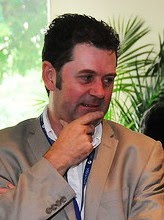John Taylor Gatto, former school-teacher, outspoken reformer, and author of Underground History of American Education, on what the Public Education System is neglecting to teach the majority of kids and why we continue to churn out generations of impotent and docile consumers. THE POINT: Taught in the elite private schools, NOT taught in the public schools.
01. Understand human nature.
02. Have a strong experience with the active literacies (writing and public speaking).
03. Insight into the major institutional forms and how to pit them against one another.
04. Repeated exercises in forms of good manners and politeness — civility as foundation.
05. Independent work. Teacher is NOT the primary learning channel.
06. Energetic physical sports are required means of learning grace and handling pain.
07. Complete theory of access to any workplace or person.
08. Responsibility as an utterly essential part of the curriculum outside the classroom.
09. Arrive at a personal code of standards for production, behavior, and morality.
10. Familiarity with master creations across all of the arts — be at ease with the arts.
11. Power of accurate observation and recording. Drawing is a way to sharpen perception.
12. Ability to deal with challenges of all sorts –Gatto's personal favorite.
13. Habit of caution in reasoning to conclusions.
14. Constant development and testing of judgment of discriminate value.



